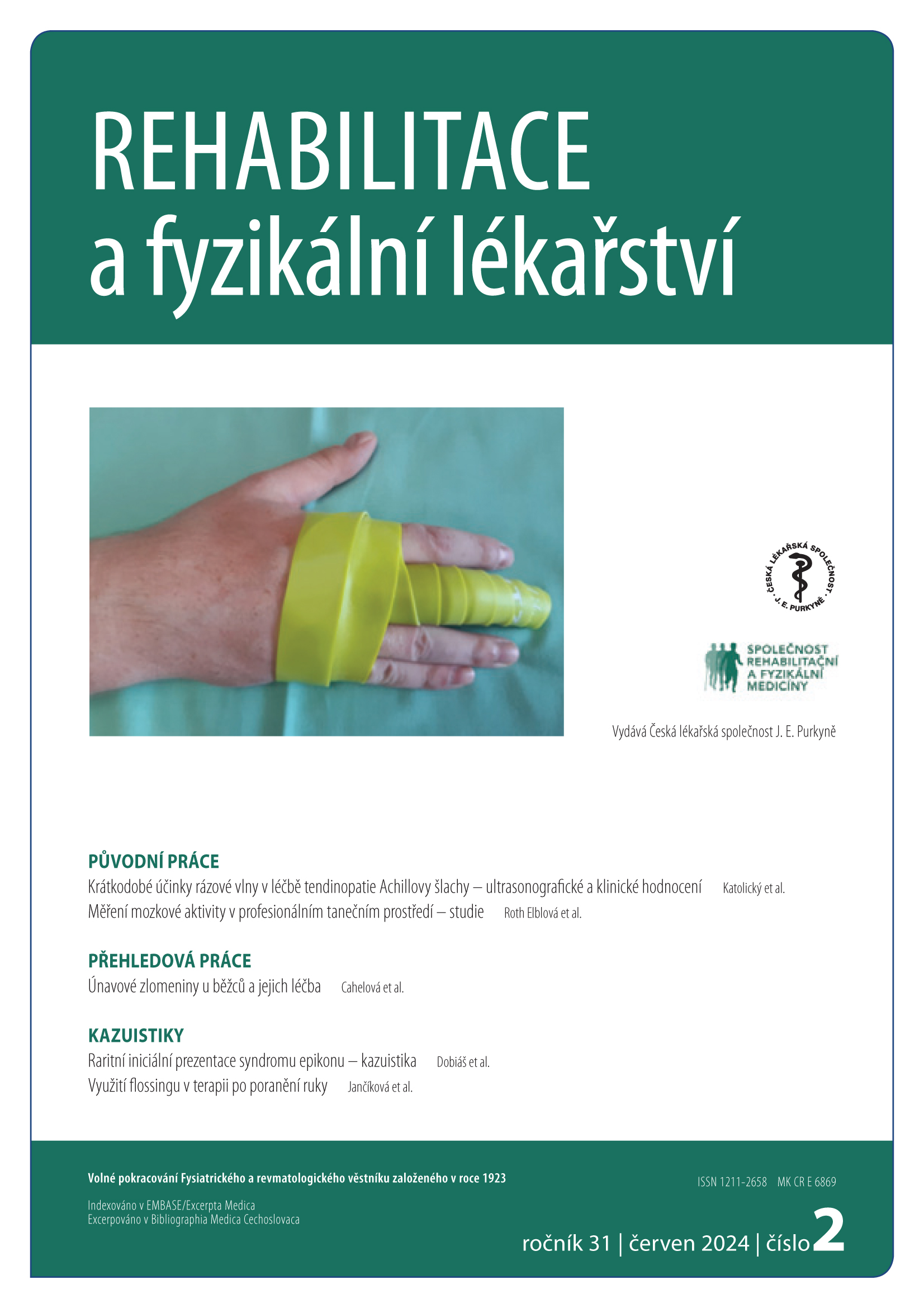Short-term effects of extracorporeal shockwave therapy in the treatment of Achilles tendinopathy: an ultrasound and clinical evaluation
Keywords:
Achilles tendon, tendinopathy, extracorporeal shockwave therapy, sonography, diagnostic ultrasoundAbstract
Achilles tendinopathy (AT) is a commonly used term to describe the clinical manifestations of pain and dysfunction of the Achilles tendon associated with loading. One of the recommended and often used methods in the treatment of these disorders is focused shockwave therapy (ESWT).
The aim of this study was to observe changes in the structure of the Achilles tendon using ultrasonography (USG) and in clinical manifestations after treatment with low-energy ESWT in the short-term follow-up period.
A total of 18 patients with AT were involved in the study, randomly divided into two groups in a ratio of 1:1. Patients in group A were treated with ESWT. In group B, placebo-ESWT was used. A total of five applications were done with a weekly interval. The following parameters were evaluated – tendon cross-sectional area (CSA), tendon diameter (TD), maximum pain rating (NRS) and VISA-A questionnaire.
In the eight week after the first application of ESWT, no statistical significance in the reduction of CSA was observed. Compared with the control group, there was only a statistically significant reduction in NRS (P <,05). In addition, there was a significant decrease in NRS by an average of 4 points (P <,001), TD by 0,3 mm (P < .05), and VISA-A score increased by 20,3 points (P < .001) in group A. In group B, no statistically significant difference (P >.05) was found in any measured parameter.
From the results achieved, it can be concluded that ESWT has a significant effect on pain reduction in the short term compared to placebo. In addition, a significant improvement in patients' overall subjective perception of the disorder was observed in the ESWT group and not in the control group. However, ESWT had no significant effect on tendon CSA and only a minimal effect on TD. Nevertheless, given the short-term follow-up, we cannot confirm or deny whether ESWT affects tendon macromorphology in the long term. It should be mentioned that the lower number of included patients may affect the statistical significance.

